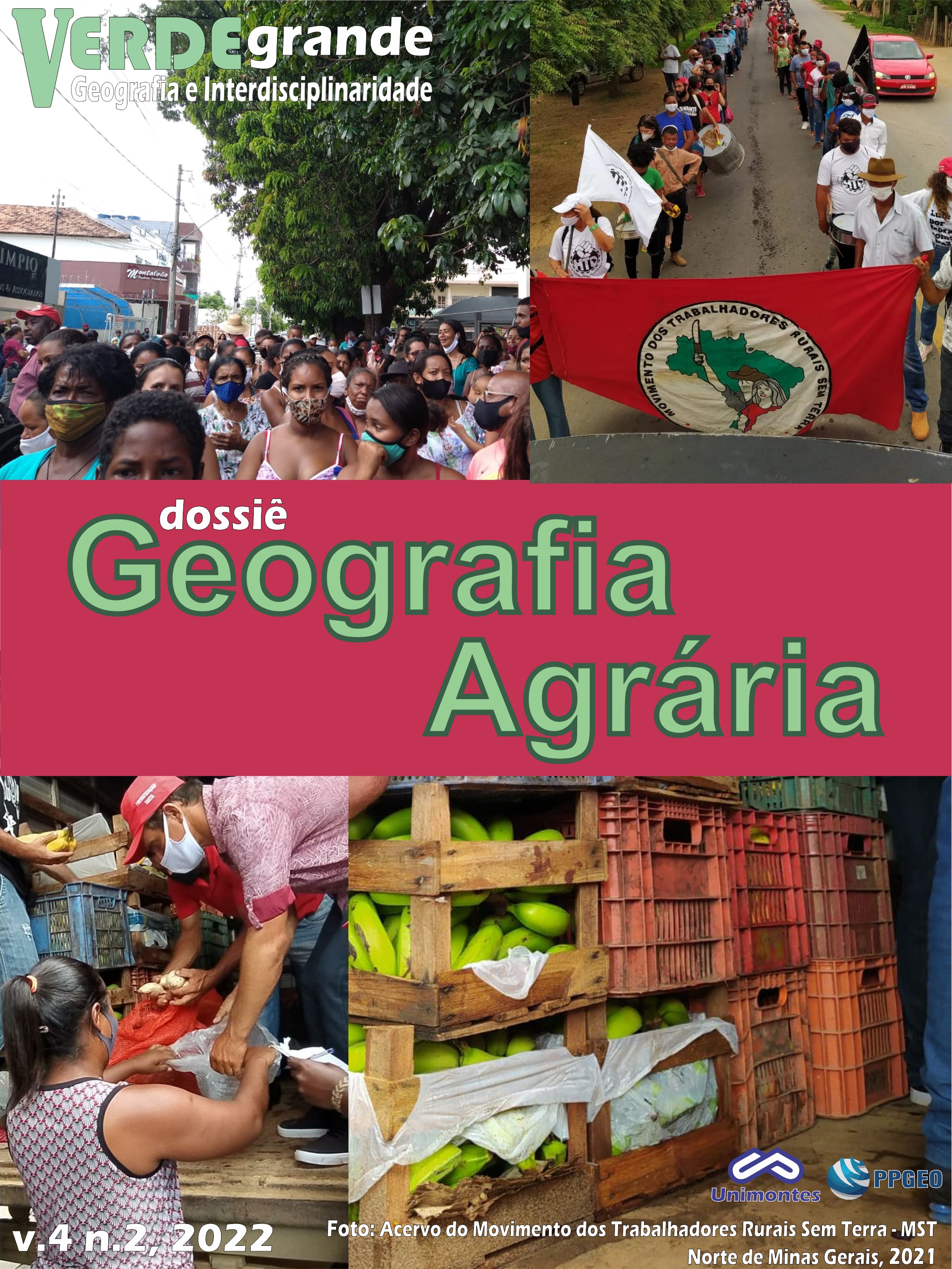Educação Ambiental e Ensino de Geografia: Entre o Cotidiano e a Sala de Aula
DOI:
10.46551/rvg2675239520222321330Keywords:
Educação Ambeintal, Ensino de Geografia, Prática PedagógicaAbstract
The present work is born from questions about urban environmental impacts, made by students of the 6th year of elementary school, in a public school in the city of Rondonópolis, in the state of Mato Grosso, during the geography class. It is noteworthy that, when addressing questions related to the environment and anthropic actions, the students pointed out some problems that they experienced in their daily lives, with this, the need to think of environmental education as a pedagogical practice emerged, starting from the classroom and meeting the students' reality. In this context, aiming to solve the students' doubts and promote the debate crossed by a practice that is not restricted to the classroom, we sought to discuss environmental education and its importance for the construction of citizenship, taking as a basis to analyze the daily life itself. from the students. With this, it was possible to notice, firstly, that few students knew the importance of environmental education, while others, due to structural factors, lack of resources or access to adequate information, had not heard, but recognized the importance of environmental preservation for the maintenance of life on the planet.
Downloads
References
ALCÂNTARA, Viviane. Importância das Atividades de Campo no Ensino da Geografia e na Educação Ambiental no Desenvolvimento Consciência Crítica do Aluno. Revista Eletrônica Uso Público em Unidades de Conservação. Niterói, RJ. Vol 3, nº 7, 2015.
BELO, Evelyn Monari; FERREIRA, Gustavo Henrique Cepolini. A importância da geografia em sala de aula: o desafio de um ensino capaz de formar o cidadão. Linguagem acadêmica, v. 2, n. 2, p. 65-82, 2012.
BERNARDES, Maria Beatriz Junqueira; PRIETO, Élisson Cesar. Educação Ambiental: disciplina versus tema transversal. REMEA-Revista Eletrônica do Mestrado em Educação Ambiental, v. 24, 2010.
BRASIL. Ministério da Educação. Base Nacional Comum Curricular. Brasília, 2018
CALLAI, Helena Copetti. Escola, cotidiano e lugar. BUITONI, Marisía Margarida Santiago (organização). Geografía, ensino fundamental. Brasilia: Ministério da Educação, Secretaria de Educação Básica, p. 25-41, 2010.
CASSETI, Valter. Ambiente e apropriação do relevo. São Paulo: Contexto, 1991.
EFFTING, Tânia Regina. Educação Ambiental nas Escolas Públicas: Realidade e Desafios. Marechal Cândido Rondon, 2007. Monografia (Pós Graduação em “Latu Sensu” Planejamento Para o Desenvolvimento Sustentável) – Centro de Ciências Agrárias, Universidade Estadual do Oeste do Paraná – Campus de Marechal Cândido Rondon, 2007.
GUERRA, Antonio Teixeira; CUNHA, Sandra Baptista da. Geomorfologia do Brasil. Bertrand Brasil, 2006.
LAYRARGUES, Philippe Pomier. Educação ambiental no Brasil: o que mudou nos vinte anos entre a Rio 92 e a Rio+20. ComCiência, Campinas, n. 136, 2012.
SANTOS, Milton, A Natureza do Espaço: Técnica e tempo, razão e emoção. São Paulo: Hucitec, 1996.
SENE, Eustáquio; MOREIRA, João Carlos. Geografia geral e do Brasil. Espaço Geográfico e Globalização, 1998.
SENE, José Eustáquio de. A educação ambiental como tema transversal no ensino de geografia: possibilidades e limites. Revista Geográfica de América Central, v. 2, n. 47E, 2011.
Downloads
Published
How to Cite
Issue
Section
License
Copyright (c) 2022 Ariel Costa Santos

This work is licensed under a Creative Commons Attribution-NonCommercial-NoDerivatives 4.0 International License.
You are free to:
Share — copy and redistribute the material in any medium or format
The licensor cannot revoke these freedoms as long as you follow the license terms.
Under the following terms:
Attribution — You must give appropriate credit, provide a link to the license, and indicate if changes were made. You may do so in any reasonable manner, but not in any way that suggests the licensor endorses you or your use.
NonCommercial — You may not use the material for commercial purposes.
NoDerivatives — If you remix, transform, or build upon the material, you may not distribute the modified material.
No additional restrictions — You may not apply legal terms or technological measures that legally restrict others from doing anything the license permits.


















 Esta obra está licenciada com
Esta obra está licenciada com 